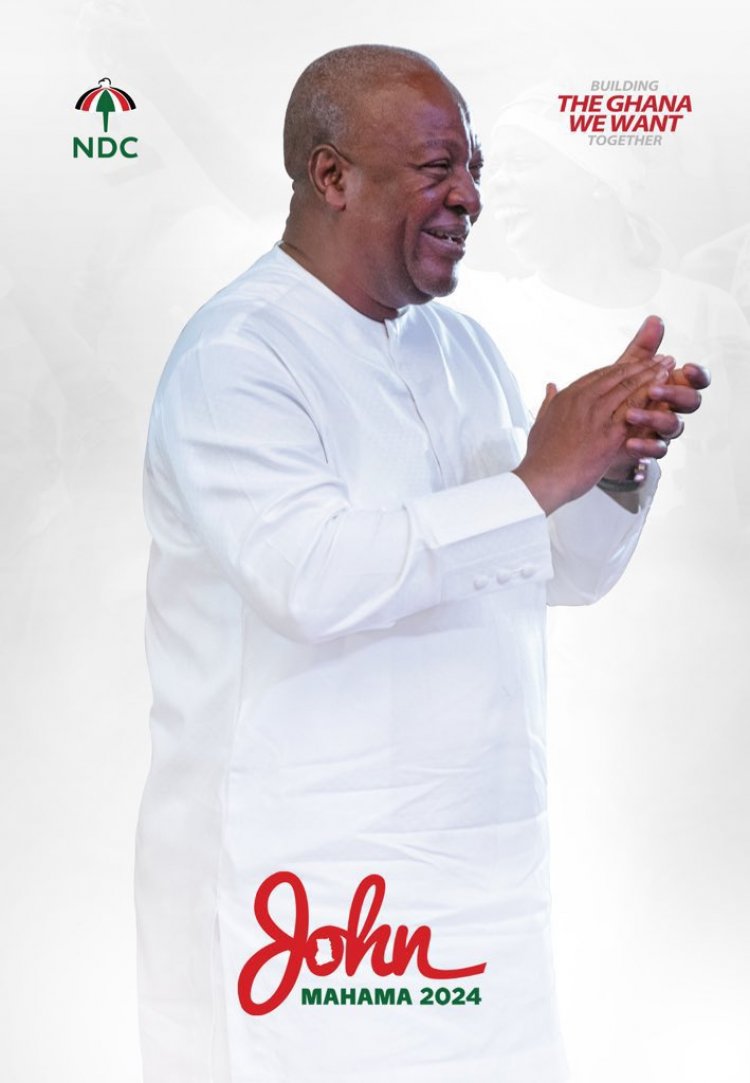John Dramani Mahama’s 24-Hour Economy Policy: A Catalyst for Economic Growth and Development
In conclusion, John Dramani Mahama’s 24-hour economy policy, as outlined in the People’s Manifesto, presents a comprehensive and achievable plan to accelerate Ghana’s economic growth and development.

In the People’s Manifesto, former Ghanaian President and flagbearer of the National Democratic Congress (NDC), John Dramani Mahama unveiled a comprehensive plan to boost the country’s economic growth and development through the implementation of a 24-hour economy policy.
This achievable initiative aims to create a conducive environment for businesses to operate round the clock, thereby maximizing productivity, creating employment opportunities, and driving economic prosperity.
Enhancing Business Operations: Under Mahama’s 24-hour economy policy, the government will focus on improving infrastructure, including transportation networks, power supply, and digital connectivity. These enhancements will ensure that businesses can operate efficiently and seamlessly throughout the day and night.
By extending business hours, the policy aims to increase productivity and output.
This will not only benefit large corporations but also small and medium-sized enterprises (SMEs), which often face resource constraints and limited operating hours.
Allowing businesses to operate round the clock will provide them with the flexibility to meet customer demands and maximize their revenue potential.
Job Creation and Employment Opportunities: The implementation of the 24-hour economy policy is expected to generate a significant number of employment opportunities.
Extended business hours will require additional staffing, leading to job creation across various sectors. This will particularly benefit the youth, who often face challenges in finding adequate employment opportunities.
Moreover, the policy will encourage the growth of new industries and sectors that can thrive in a 24-hour economy, such as hospitality, entertainment, and tourism. These sectors have the potential to create a wide range of jobs, from hotel staff and tour guides to event managers and performers.
Boosting Economic Growth: The 24-hour economy policy is expected to have a positive impact on Ghana’s overall economic growth.
By maximizing productivity and extending business hours, the country can attract foreign investments and enhance its competitiveness in the global market. Increased economic activity will lead to higher tax revenues, which can then be reinvested in infrastructure development and social welfare programs.
Furthermore, the policy will contribute to reducing unemployment rates and poverty levels. As more individuals gain employment opportunities, their purchasing power will increase, leading to greater consumer spending and economic growth.
This virtuous cycle will stimulate demand, boost local businesses, and drive the overall development of the country.
In conclusion, John Dramani Mahama’s 24-hour economy policy, as outlined in the People’s Manifesto, presents a comprehensive and achievable plan to accelerate Ghana’s economic growth and development.
By creating an enabling environment for businesses to operate round the clock, the policy aims to enhance productivity, generate employment opportunities, and boost economic prosperity.
If successfully implemented, this initiative has the potential to transform Ghana into a vibrant and dynamic economy, attracting investments and improving the lives of its citizens.
Michael Agbesi Kelly
#BuildingGhanaTour

 Freeman Koryekpor
Freeman Koryekpor 



































